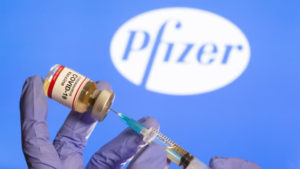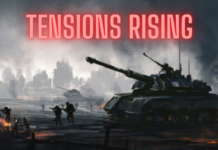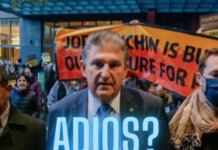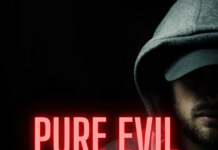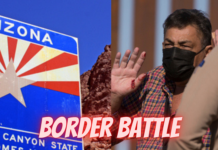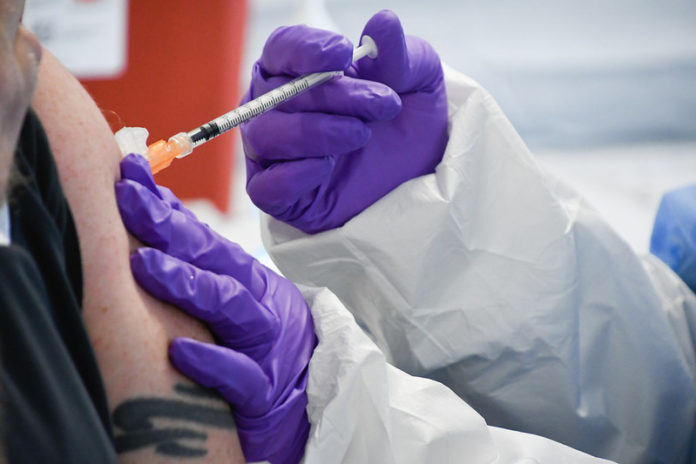
Following the FDA’s proposal to approve Pfizer’s COVID-19 vaccination for kids ages 5 to 11, Arizona may see slots for that age range opening up very soon.
On Tuesday, an FDA advisory council voted 17-0 to broaden adolescent enrollment. Before, only individuals over 12 could get the Pfizer vaccination.
Per the Arizona Department of Health Services, 600,000 kids will likely qualify for the vaccine. No matter whether children are at risk of severe COVID-19 problems, the FDA panelists say there is the need to have children vaccinated.
Nevertheless, before getting your kids vaccinated, read this.
Arizona Gov. Doug Ducey says he doesn't plan to stop his pursuit against the implementation of vaccine and mask mandates in the state.https://t.co/H76etbz8Qc
— KTAR News 92.3 (@KTAR923) October 29, 2021
Do Kids Need Vaccines?
Per the American Academy of Pediatrics, 40 kids died from COVID-19 in Arizona, the second-highest in the US. According to ADHS, about 3,000 people under the age of 20 have been admitted.
The CDC claimed the Pfizer vaccination was highly efficient in avoiding severe sickness and hospitalization from COVID-19 in children aged 12 to 18. They also said vaccinating youngsters helps prevent the transmission of COVID-19 to more susceptible groups.
The vaccine had been administered to 59 percent of the state’s population on Thursday. Researchers agree 60-80 percent of the populace must be vaccinated to establish “herd” immunity, which guards against the spread of COVID-19.
Government: “we are investigating why there is a higher incidence of Covid in 5-12 year olds”
5 year olds when they cough: pic.twitter.com/vOVbLwX7Qe
— Emma loves Trønt (@Notrossiter) October 27, 2021
Is It Safe for Children?
As of Thursday, approximately 4.2 million Arizonans have gotten at least one dosage of the vaccine, including nearly 400,000 aged 12 to 19; yet Arizona still has the second-highest death rates in the country.
The CDC also claimed there was no higher risk of fatality among the 6.4 million Americans who had gotten the vaccination than among the 4.6 million who had not. The outcomes held up even when controlling for age, sex, ethnicity, and vaccine type.
Children’s shot doses are also lower than adults’. From 5 and 11 years old, a 10-microgram dosage of the vaccine is administered twice.
Vaccine adverse effects include pain, edema, fatigue, migraine, cold, fever, and vomiting. This is primarily because the vaccine exposes you to the virus.
Vaccine-induced severe allergic reactions include breathing problems, redness, and swelling of the face and neck, elevated heart rate, rash, or disorientation.
Almost all Arizona children ages 5 to 11 are already protected against illnesses such as smallpox, tetanus, whooping cough, measles, mumps, and polio, according to ADHS Interim Director Don Herrington.
The Pfizer vaccination is presently the sole option for children over 12. According to an FDA advisory committee proposal, the Pfizer vaccination for children ages 5-11 is anticipated to be ready next month.
If the Vaccine is So Effective, Why Do Schools Still Have Mask Mandates?
Arizona school systems have different mask policies. Specialists still advise wearing masks to avoid respiratory droplets from infecting people and transmitting COVID-19, further showing that even when vaccinated, one can still get the virus.
ADHS’s Herrington anticipates an initial allotment of 224,700 units of the shot for kids ages 5-11, with further doses coming shortly after the CDC makes its decision.
In conjunction with drug stores, Arizona has over 900 clinicians who can give pediatric COVID-19 immunizations. Vaccination activities in classrooms and underserved areas have been held with various healthcare professionals and population health partners.
Pediatricians, health clinics, and pharmacies should be able to accommodate parents’ requests.

